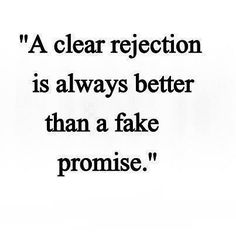I recently discovered (and have been devouring) a new-to-me author, Christian Galacar, who is often compared to Stephen King. After I finished my first download of his, I visited the Amazon page to learn more about him and what else he had published. I soon found myself going down the rabbit hole of reading some of the hundreds of posted reviews about the book.
Most were positive. The majority were fair.
And then there were the reviews that accompanied a single star.
And most of those were utter nonsense.
They were interesting reading because they had no emotional associations for me, I could scan them for generalizations and patterns. And in doing so, I realized that there is much in common with these one-star reviews and rejection in personal relationships –
One-Star Review Reason – “I haven’t used this product or service.”
I’m planning on surprising my husband with dinner at a local place that promises to serve Maryland-style crab cakes. Since I have never been there, I checked them out online to get a better sense of the establishment. I ran across a one-star review by a woman who admitted to never never eating at the restaurant and then proceeded to slam them for everything from food quality to service. Ummm…. what?
Personal Rejection Equivalent – “I was never present in the relationship.”
“We’re just not connecting,” they may say, ignoring the fact that they haven’t even looked in your direction in months. They are quick to blame you and even quicker to ignore the fact that their claims are based on assumptions.
_______
One-Star Review Reason – “I don’t like this type of thing.”
One of the poor reviews for my new author obsession mentioned that the reader doesn’t appreciate horror novels. Yet they proceeded to download – and negatively review – a book that is clearly marketed as horror. Completely confusing personal preference as being a sign of poor quality.
Personal Rejection Equivalent – “I don’t like this type of person.”
If we give them the benefit of the doubt, maybe they were not aware of their preferences in the beginning. Or maybe they thought that other qualities would somehow make this other thing not matter. Regardless, they made a poor choice for their needs or wants in the beginning and then tried to pass it off as being your fault.
_______
One-Star Review Reason – “I always give one-star reviews.”
For our recent vacation, I perused many Tripadvisor reviews. Before I gave a one-star review any credence, I checked the poster’s other reviews. And oftentimes, I noted that they were all negative. Some people are simply never happy, even when they’re on vacation.
Personal Rejection Equivalent – “I’m never satisfied in a relationship.”
And what’s the common denominator here? Hmmm. If they are never happy, that’s on them. Not you.
_______
One-Star Review Reason – “I can’t get beyond…”
Maybe the food was amazing, but the server seemed a little distracted. Or, the book was amazing but the ending didn’t meet expectations. Whatever the reasons, these reviewers allow one element to taint the entire experience.
Personal Rejection Equivalent – “I expect perfection and have trouble letting go of mistakes.”
This is the person with unrealistic expectations who also likes to hold a grudge. That one time you forgot to pick up milk at the grocery store two years ago? I bet you’re still hearing about it. No matter how much you try to please this person, it will always feel like playing Whack-a-Mole.
_______
One-Star Review Reason – “Through my lens…”
When I first started sharing publicly, the reviews and comments often gutted me. Except this style, which simply confused me at the beginning. “You never showed your husband any affection or attention. It’s no wonder he left you. What did you expect him to do? Live in a loveless marriage unhappy for the rest of his life?” Huh? This in no way described or marriage or matched what I had shared. And then it dawned on me – this man wasn’t really reviewing me. He was reviewing his ex-wife.
Personal Rejection Reason – “I feel this, therefore you feel this.”
Ah, projection. Our old friend. It’s a convenient way to avoid responsibility.
Most things in life – and that includes relationships – are neither one-star or five-star. Most things exist in the between, a mixture of both good and bad. There are things to critique and improve upon and also things to recognize and celebrate. And anyone who claims otherwise is either selling something, hiding something or trying to avoid something.













